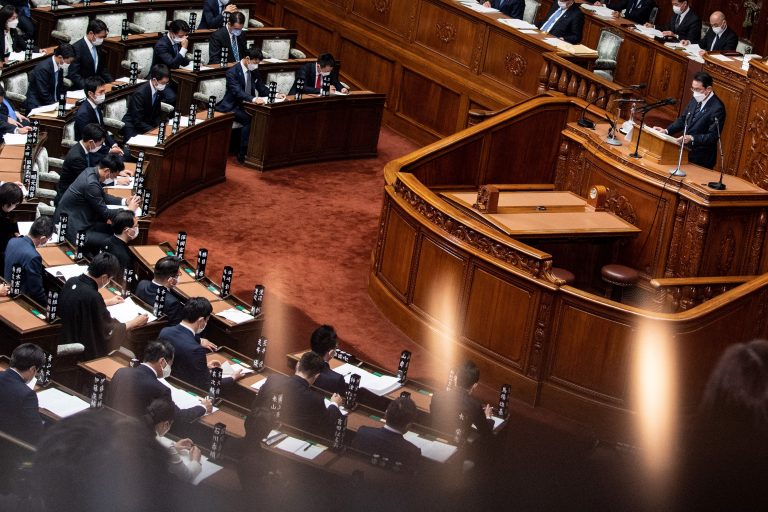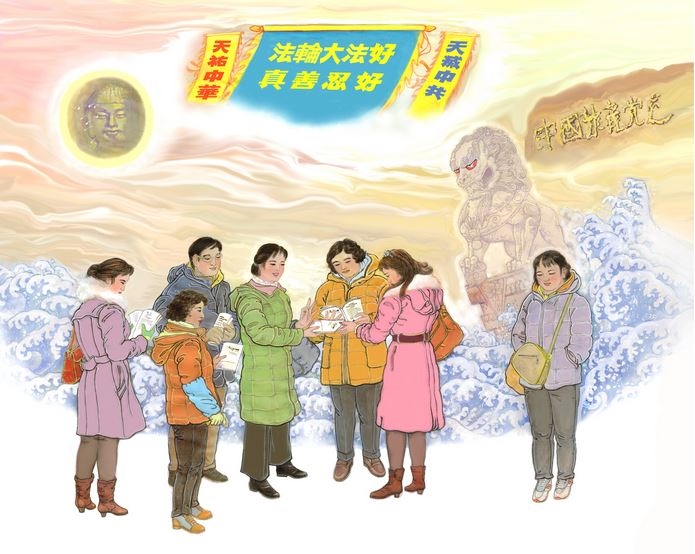On Feb. 1, Japan’s lower house of parliament adopted a resolution that expressed concern about the Chinese communist regime’s human rights abuses against the Uyghur ethnic group in Xinjiang. The resolution was adopted just days before the 2022 Winter Olympics is scheduled to kick off in Beijing on Feb. 4.
“In recent years, the international community has expressed concern over the serious human rights situation in the Xinjiang Uyghur Autonomous Region, Tibet, Southern Mongolia, Hong Kong, and other areas, including violations of religious freedom and forced imprisonment… Since human rights have universal value and are a legitimate concern of the international community, human rights issues should not be confined to the internal affairs of a single country,” Japanese lawmakers said in a late draft as seen by Nikkei Asia.
However, some have criticized Japan’s resolution as too soft. For one, Tokyo’s position does not directly criticize China as it does not even name the country. Secondly, Japan changed the term “human rights violations” in an early draft to “human rights situation” in its latest draft, adopting a toned-down attitude to the situation, according to Nikkei.
A few opposition party members criticized the change in wording. Other nations like France have taken a stronger stance against the communist regime, calling the treatment of Uyghurs a “genocide.”
During the parliament session last year, a proposal to adopt the resolution went nowhere as members couldn’t arrive at a consensus on the issue. As such, some see the fact that the resolution was even passed as an achievement. Over one million Uyghurs are said to have been sent to internment camps in Xinjiang where they are brainwashed to leave their culture and proclaim loyalty to the communist ideology.
Olympic protests
Success
You are now signed up for our newsletter
Success
Check your email to complete sign up
Japan’s resolution comes as many groups have highlighted Communist China’s atrocities amidst the Olympic Games. In a letter written to Ms. Michelle Bachelet, the UN High Commissioner for Human Rights, lawmakers from 20 nations who are part of the Inter-Parliamentary Alliance on China (IPAC) called on the organization to publish its report on Uyghur rights before the games begin.
“As the world’s attention turns towards Beijing for the start of the Winter Olympics, it is of paramount importance that the Chinese government is held to account for its actions in the XUAR (Xinjiang). We urge you to publish the findings of the report, announced as in its final stages in September 2021, before the beginning of the Games. Doing so would send a strong signal that no country is beyond scrutiny or above international law,” the letter said.
Nearly 250 non-government organizations have issued a joint statement, calling on nations to diplomatically boycott the Beijing Olympics. Sophie Richardson, China director at Human Rights Watch, insisted that the Winter Olympics cannot be a “force for good” as claimed by the International Olympic Committee (IOC) given the fact that the Chinese government is committing “grave crimes” that violate international law.
Renee Xia, Director of Chinese Human Rights Defenders, said that holding the games in Beijing allows China to normalize its communist authoritarianism. When the world “rationalizes away such an abusive situation,” victims will find it difficult to stand up against the injustice perpetrated against them.
“The IOC claims that sport and politics do not mix, but the Chinese government was the one that used the 2008 Beijing Olympics to serve its political interests… Tibetans in Tibet then took the risk to tell the world about this, but the IOC didn’t pay heed. The upcoming Beijing Olympics is a unique opportunity for the IOC and governments to empower their athletes and press Chinese authorities to abide by international norms,” Bhuchung K. Tsering, interim president of the International Campaign for Tibet, said in a statement.













